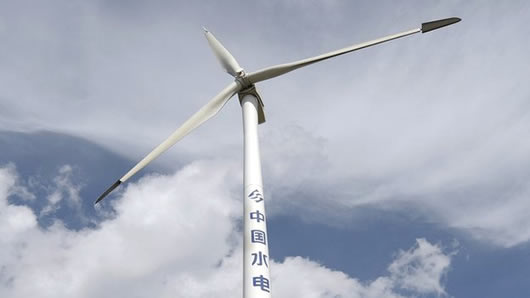 African delegates and technocrats at the on-going international Climate Change Conference dubbed COP 20 in Lima, Peru, are convinced that adaptation is an essential priority in the continent’s fight against climate change.
African delegates and technocrats at the on-going international Climate Change Conference dubbed COP 20 in Lima, Peru, are convinced that adaptation is an essential priority in the continent’s fight against climate change.
Adaption is important for the continent because most of its key sectors particularly agriculture and food security, forestry, water resources and social development are highly sensitive to climate change.
Adaptation measures seek to lower the risks posed by the consequences of climate change.
These views were strongly highlighted during the 15th Session of the African Ministerial Council on Environment (AMCEN) on Sunday December 7th in Lima, Peru. The Session was a major side event of the on-going international Climate Change Conference dubbed COP 20.
The Session provided a platform for the technocrats and experts to brief the ministers on the status of negotiations at the COP and to update them before a High Level Meeting today, Tuesday December 9th. Today’s meeting will be the forum for delivering of national statements by Ministers of Environment from the various countries including Ghana.
The deliberations focused on the contenst of the draft Negotiation Agreement, which according to the African Group Lead Negotiator, Xolisa Nhwadla, “has significant implications for Africa’s development.” One key issue for instance, is the demand by the developed countries for Africa to make action based commitments to address the root causes of climate change by reducing greenhouse gases emissions.
Greenhouse gases include carbon dioxide and methane whose excess release into the atmosphere through human activities is resulting in global warming one of the cause of climate change.
This, in other words suggests that African for example is not doing enough to address the causes of climate change, to which she has not been a major contributor and yet is the most vulnerable and least capable to handle the impacts.
Nhwadla pointed out, “Africa is already doing enough to address climate change through adaptation measures being implemented in the various countries.”
He urged the international community to accept and see as responsible actions, measures that address flood situations, water scarcity, deforestation and agricultural problems, as pertinent climate change actions. He explained that “these activities often stem from mitigation efforts to reduce emissions.
The President of AMCEN, Dr. Terezya Huvisa who earlier opened the Session, stressed that “our vision as leaders is to protect Africa’s collective interest in adaptation, mitigation, finance, technology and capacity building.” A representative of the African Union Secretariat announced that the Assembly of African Union Heads of States was looking forward to the outcome of the meeting.
The clarion call from Africa to the international community is “support us in any way you can because by adapting, we’re indirectly mitigating.” Africa’s focus on adaptation is driven by the enormous responsibility imposed on her as a result of climate change impacts, which experts agree are hampering the attainment of the continent’s development goals.
The Africa Adaptation Gap Report notes that “Africa faces a significant challenge in adapting to climate change with costs and damages rising rapidly with warming.” The Report sees Africa as a “vulnerability hotspot’ for the impacts of climate change. The continent’s “adaptation challenge will grow substantially even if … global mean warming is held below a 2 degree Celsius above pre-industrial temperatures.”
The Report jointly published by UNDP and AMCEN also notes that warming limited to below 2 degree Celsius still implies major adaptation costs for Africa; while a prediction of an increase in global temperature to 4 degree Celsius by 2100 will hit the continent very hard.
Should this happen, the projected outlook according to the Report, will include – more frequent and severe extreme weather events including droughts, floods and heat waves. The associated risks of these events will undermine human health that will be evidenced by increased transmittable diseases as well as under nutrition.
Other predictions by the Report are that agricultural and fishery productivity will be diminished. While, at any temperature exceeding 3 degrees Celsius globally, virtually all of the present maize, millet and sorghum cropping areas across Africa could become inviable.
Again the Report declares that how Africa deals with these climate impacts, now and in the future will be co-determined by the funding she receives. It notes that adaptation measures such as early warning systems and coastal zone management to counter sea-level rise offer a possibility of reducing these impacts.
However, Africa’s capacity to adapt depends critically on access to funding. The Report calls for an up scaling of annual funding for adaptation, which it considers as urgent in order to increase confidence in meeting adaptation needs in Africa.
Source: B&FT























